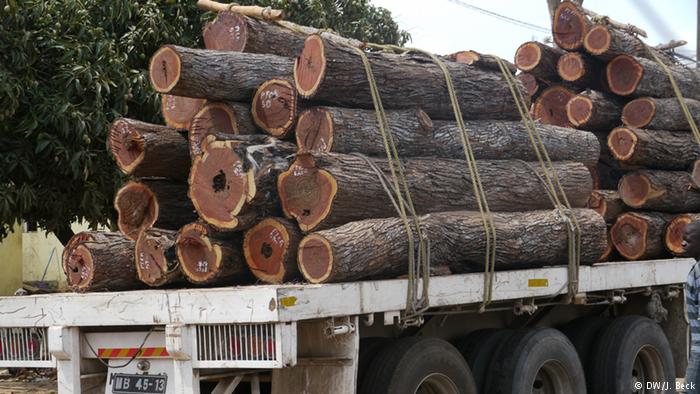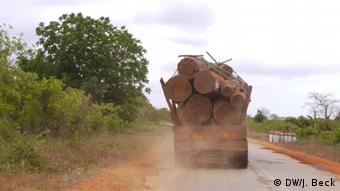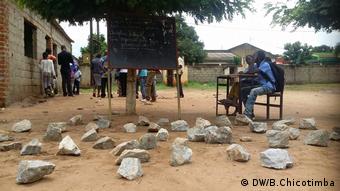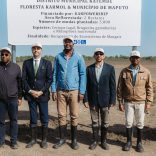Mozambique: Pioneer of biodiversity conservation Roberto Zolho passes away
What of the logs seized in ‘Operation Tronco’? – Divided opinions in Mozambique

DW / Illustrative picture: Transport of logs in the province of Manica
Controversy has arisen over the fate of large quantities of illegally logged timber seized during an operation carried out by the Mozambican authorities.
A campaign carried out by the authorities in recent weeks in central and northern Mozambique detected serious irregularities in the cutting, transport and export of timber.
Irregularities include the felling of protected timber, felling during the closed season, the logging of timber with smaller diameters than those recommended and the export of logs and unprocessed timber.
The fate of the seized timber is already generating controversy, although the Ministry of Land, Environment and Rural Development is clear on the matter, as Amílcar Pereira, adviser to the minister, has said.
“The law is clear about the fate of seized timber. One possibility is public auction, another to use the wood for public service activities.”
Take bold measures
But, for the Lumber Association of Mozambique, bold measures are necessary to reverse the current scenario.

Illegal logging is one of the main causes of the devastation of Mozambican forests. Official data indicate that the country loses about 220,000 hectares of native forest each year.
Interviewed by DW Africa, the President of the Loggers Association, Hilário Chacate, says that his organization backs the burning of the recently seized timber to discourage those responsible.
According to Chacate, this is the best measure at this moment because “it will allow, at least, that what little still exists in the forest is protected. We have to stop taking measures that launder the proceeds of timber cut in violation of the country’s laws and regulations. We must take bold measures, because only in this way will we cut off the evil at the root”, he said.
Against incineration

Civil society organizations promoting sustainable development are opposed to incineration, according João, director of the Civil Society Support Movement. “This wood can be used to improve the quality of the service provided by the state, especially in the area of education, health, and the Ministry of Interior, where there is a lack of desks, chairs and tables,” Pereira says.
The National Union of Students holds the same view. “We are against (incineration) because (seized wood) is a scarce resource that can be used to make desks that are vital for students in Mozambique,” NUS president Bernardino Zunguza told DW Africa.
Thousands of students in Mozambique study in the open air or sit on the floor. But, “One can make a decision that the wood should be used to make of desks for schools, but I ask: and what about the follow-up action?” asks Hilário Chacate of the Timber Association.













Leave a Reply
Be the First to Comment!
You must be logged in to post a comment.
You must be logged in to post a comment.